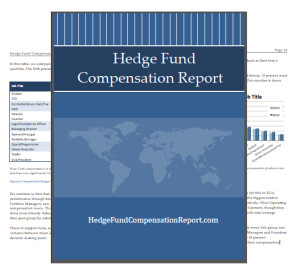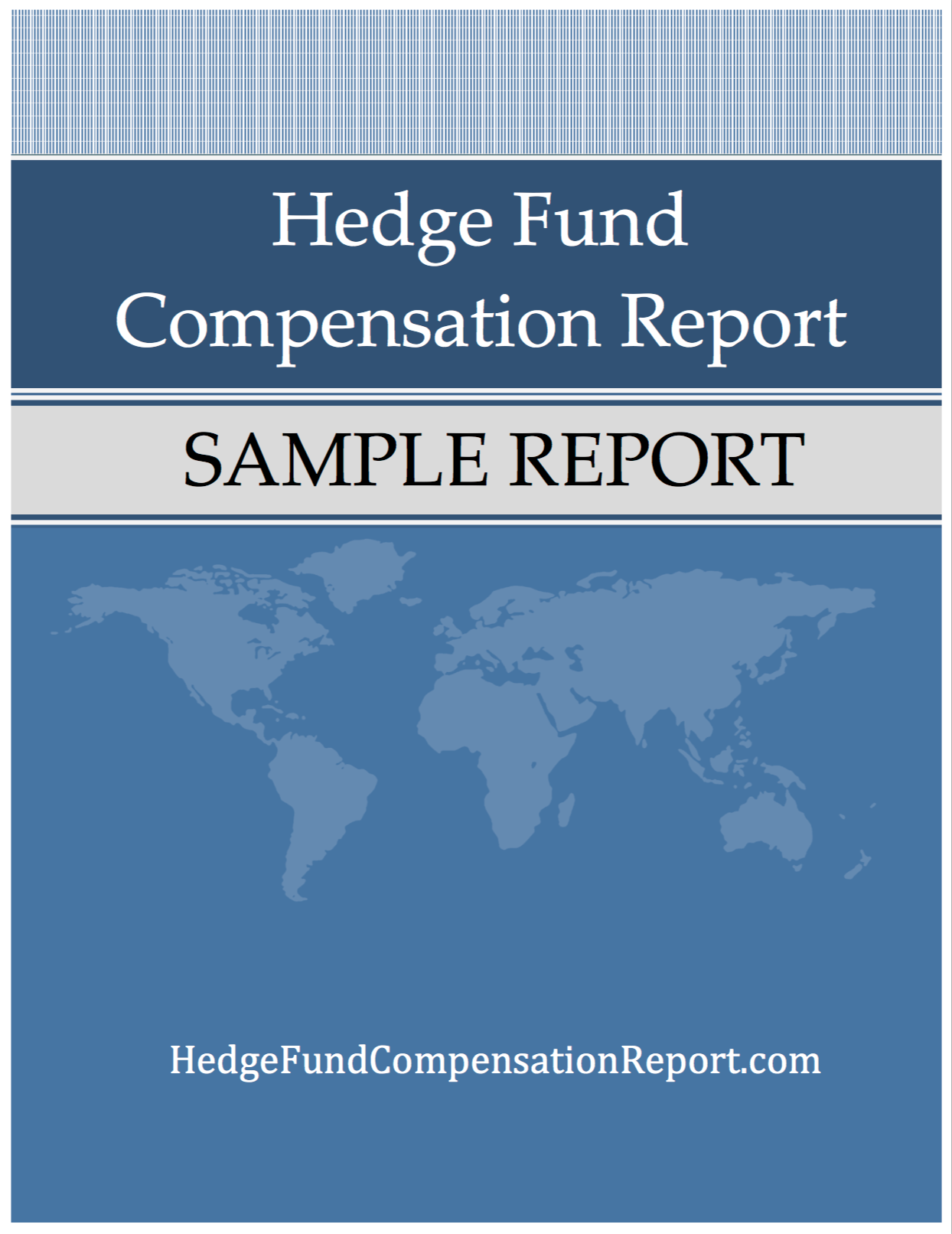2016 Hedge Fund Compensation Report Indicates
Bonuses Took a Hit This Year
Ninth annual report shows that lackluster fund performance impacted those at the top but not across the board.

Hedge Fund Compensation Report 2016
SAN DIEGO, CA, January 20, 2016 — The 2016 Hedge Fund Compensation Report revealed that hedge fund professionals received increases in both base salary and year-end bonuses. The average reported cash compensation was down this year and came in at $351,000. The annual industry report is based on data collected directly from hedge fund managers and employees representing hundreds of investment firms.
Overall, reported cash compensation was down 5 percent over last year, driven by lower bonus payouts. Although average base compensation increased by single digits again this year, lower bonuses pulled down total hedge fund compensation.
“Despite smaller bonuses, over half of our respondents expected to take home more cash compensation than last year,” said David Kochanek, Publisher of HedgeFundCompensationReport.com. “At the other end of the pay scale, almost 1 in 5 hedge fund professionals expected lower pay.”
It is weaker fund performance that is driving lower bonus payouts. This year 75 percent hedge fund professionals reported positive performance for their funds, a decline of 4 percentage points from last year’s report. When compared to the 90 percent that reported positive returns a couple of years ago, the lower bonuses are no surprise.
The take home pay levels were still significant, with 39 percent reporting cash compensation of $250,000 to $500,000 and 15 percent earning more than $500,000. While those making less than $500,000 will see bonuses that make up about half of their cash compensation, the top earners count on bonuses for about two thirds of their pay.
It is not traders who reported getting hit by the lower performance numbers, it is the directors and portfolio managers who saw the biggest drop in bonus payouts. “Where last year we reported a disconnect between performance and bonus payouts, this year those with the more influence in the investment decision either saw lower bonus growth or a decrease,” says Kochanek.
Again this year, there was still a disconnect between bonus pay and performance but, this time around, the disconnect was for those not directly involved in the investment decision process. For example, Chief Financial Officers in firms with large funds and negative performance expected a mean bonus of over $250,000, but their peers in firms reporting gains of 10 percent or better expected just over half that bonus amount. “This is what makes hedge fund compensation benchmarking such a complex activity,” says Kochanek. “It’s not as easy as saying ‘this is what CFOs make.’ In addition to titles, you need to ask about responsibilities, fund size, performance, and industry experience.”
For the third year running, there was a decline in the number of respondents reporting as being “very concerned” about their job security. In 2015, 8 percent fell into this category, last year it was 10 percent and 13 percent the year before that. It seems weaker fund performance is not of great concern to hedge fund professionals, despite historical evidence that suggests the level of concern should be increasing.
About the Report
The 2016 Hedge Fund Compensation Report is based on compensation data collected directly from hundreds of portfolio managers and employees.
The Report has grown to become the most comprehensive benchmark for hedge fund compensation practices in the industry. Respondents participating over the years represent a good cross-section of the industry including small firms as well as some of the most recognized hedge fund firms, including: Apollo Global Management, Bank of America Merrill Lynch, Barclays, BlackRock, Bridgewater Associates, Carlyle, Citigroup, Credit Suisse, Deutsche Bank, Gottex Fund Management, HarbourVest, JP Morgan Chase & Co., INTL FCStone, LCF Rothschild, Man Investments, Och Ziff Capital, Pimco, RBC, Silver Point Capital, UBP Asset Management, UBS and Wells Fargo Alternative Strategies.

